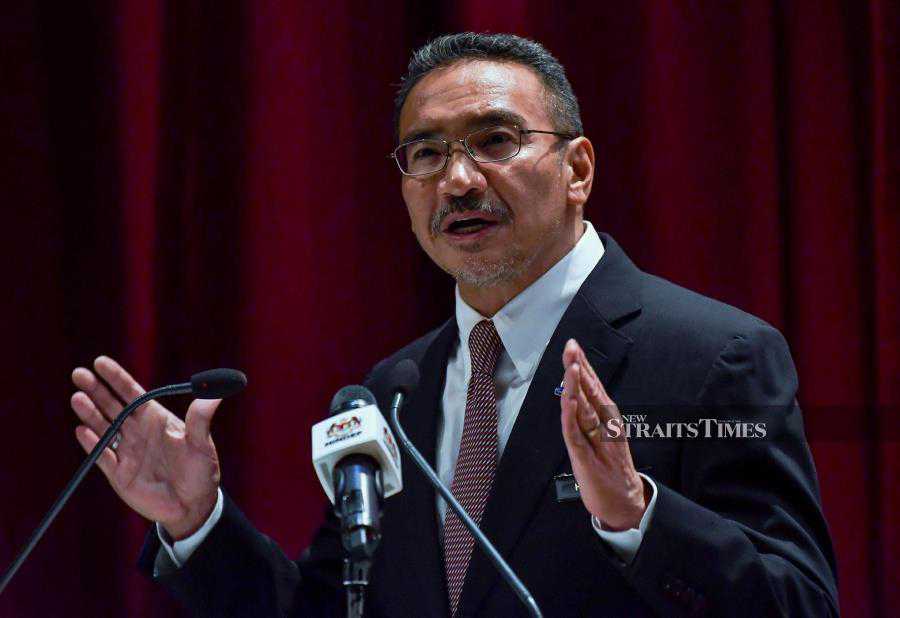SCS should be maintained as ocean of peace, stability, trade

Image collected
All get-togethers should ensure the liberty of navigation in and overflight above the South China Ocean, and must steer clear of provocative actions especially at the same time where governments all over the world are focused on combating a global pandemic.
Foreign Minister Datuk Seri Hishammuddin Hussein stated Malaysia's stand on the South China Ocean issue was distinct, that territorial and maritime disputes must be resolved through calm means, and in accordance with universally recognised principles of law, including the US Convention on regulations of the Sea 1982.
Speaking for the Asean Regional Forum (ARF) today, Hishammuddin explained Malaysia also looked forward to the resumption of negotiations upon the Code of Execute of Get-togethers in the South China Sea.
"Nevertheless, we must concentrate on steering clear of unintended, miscalculated accidents found in the ocean. As we have read from our deliberations in the last three days, the occurrence of warships and vessels in the South China Ocean gets the potential to escalate tensions in our region and this is severely not needed.
"The South China Ocean must be a sea of peace, balance and trade, and really should never become an arena for contention where Asean member states happen to be caught in a conflict we aren't party to," he said in his speech.
He added Southeast Asia intended to remain the grasp of its own destiny, with the only real aim and reason for ensuring peace and stability in the region.
"I implore celebrations involved to have this into serious concern as we progress, as regional balance is a lot more important in these exceptional occasions."
The ARF is attended by all 10 Asean foreign ministers, and all 10 foreign ministers from Asean Dialogue Companions, namely america (attended by its Secretary of State), Russia, europe, China, India, Canada, Australia, New Zealand, Japan, and South Korea.
Additionally it is attended by foreign ministers of Bangladesh, North Korea, Mongolia, Pakistan, Sri Lanka, Timor-Leste and Papua New Guinea.
Hishammuddin, found in his speech, also known as after signatory countries of the 1951 Convention to uphold and stand committed to their international legal obligations to get extra refugees for resettlement or relocation.
This, he said, as Malaysia continuing to bear the brunt of the spillover results from the prolonged Rakhine Talk about Rohingya crisis.
He added that Malaysia could no longer take more displaced persons from Rohingya, as the country's resources and potential had been stretched, compounded by the Covid-19 pandemic.
Hishammuddin said Malaysia, on the other hand, had been unfairly likely to do more to support incoming refugees, with added pressure from humanitarian groupings.
"Malaysia reaffirms the necessity for proportionate burden and responsibility sharing.
"Malaysia strongly supports a good repatriation method, which is voluntary, safe and sound and dignified, of displaced folks from the Rakhine State, and appeals to Myanmar and Bangladesh to find a great expeditious and sustainable choice to the matter."
He said vulnerable Rohingya people would continue being vunerable to exploitation and victimised by unscrupulous human traffickers and terrorists, if the crisis had not been immediately addressed.
"We must address the problem of smuggling and trafficking of humans, where the onward movements of refugees to third countries happen to be exploited for revenue. Or worse even now, recruited by terrorist forces because of their wicked means," he added.
On countering terrorism and violent extremism, Hishammuddin said although terrorist groups had remained relatively silent during Covid-19, countries must not discount the actual fact that terrorist groups could possibly be ramping up initiatives to take advantage of uncertain times to help expand enhance their agenda.
Transparent communication, great networking, and increased intelligence cooperation on countrywide and overseas levels, he added, were vital to counter terrorism and radicalisation through the pandemic.
"That is a psychological war waged in the vulnerable and
we must make an impression on hearts and minds to achieve success. Effective communication approaches at all available stations should be prioritised to make certain that misinformation and disinformation is usually countered, without infringing particular domestic laws."
Source: https://www.nst.com.my
Tags :
Previous Story
- Modern slavery risk surges for Bangladesh, India RMG...
- Another blow to China as Japan adds India,...
- Do not travel to Bangladesh because of Covid-19:...
- Bangladesh ties with India, China stand on distinct...
- Italy issues travel ban for 3 more Balkan...
- Bangladesh: Zero-tariff imports, a good diplomatic victory for...
- As the Sino-Indian rivalry gets hotter, watch Bangladesh...
- Supply chain to greatly help revive battered economy